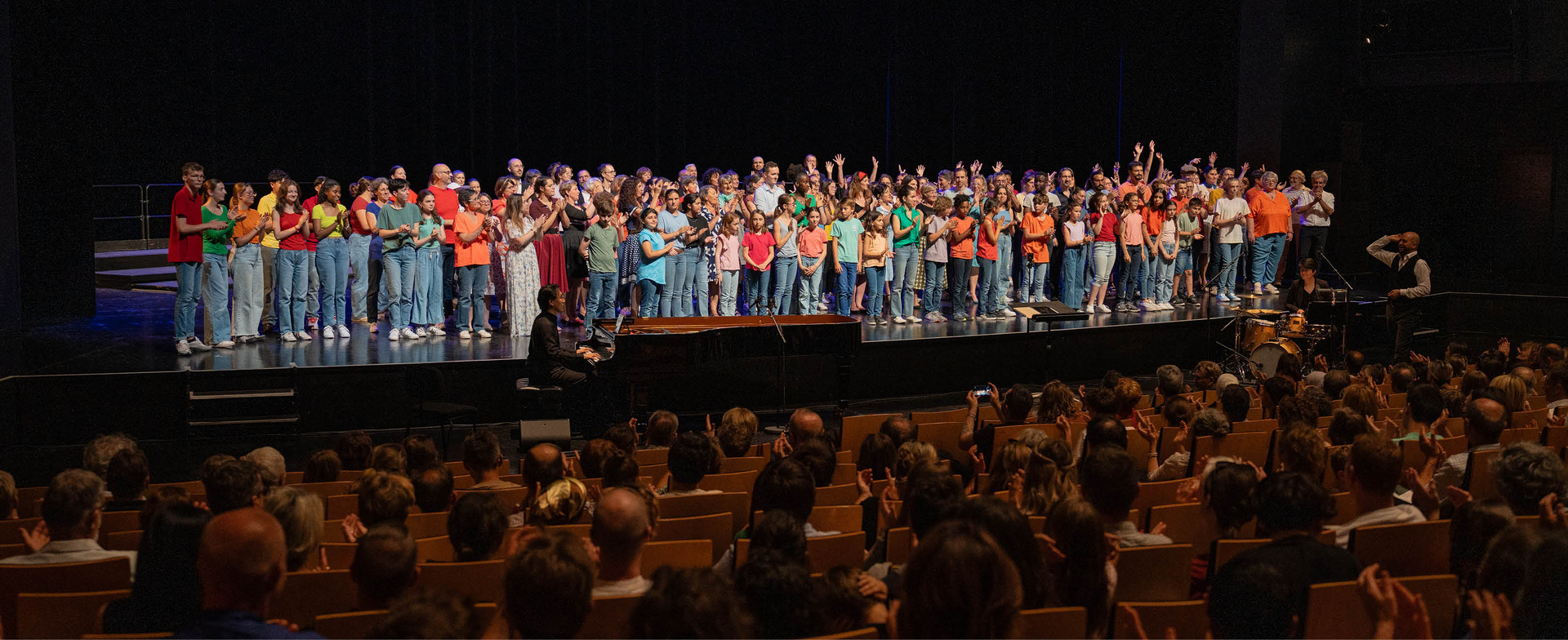Orchestre Dijon Bourgogne et Chœur de l'Opéra de Dijon
To celebrate music, and its power on body and soul, what better way than with the galvanizing Carmina Burana by Carl Orff? Between sacred and profane, between the altar for prayer and the table for feasting, this larger-than-life score is a true hymn to the art of sound.
It was in 1935 and 1936 that Carl Orff discovered the medieval poems from the monastery of Benediktbeuern, and decided to select 24 of them to put together a libretto for a profane cantata. In the manuscripts, Latin rubs shoulders with High German in a joyous mix, even if the ostensibly sacred texts often make reference to rather earthly subjects: fortune, the return of spring, luxuriousness, the pleasures of alcohol and gaming... Powerful and charismatic, the musical style of Carl Orff is surprisingly accessible: far from the modernism of his contemporaries like Bartók, Stravinsky or Schoenberg, he takes inspiration from the art of the Renaissance and the early Baroque to deploy structures that are simultaneously simple yet grandiose, and always intensely euphonic. With its famous opening chorus, O Fortuna, fixed in the minds of moviegoers as the theme for the nocturnal horse charges in the film Excalibur, Carl Orff’s score is as anachronistic as it is a popular phenomenon of our times: a hymn to the "carmen", those conjugated powers of magic and song.
Direction musicale Joseph Bastian
Orchestre Dijon Bourgogne
Chœur de l'Opéra de Dijon
Soprano Alexandra Flood
Baryton Yoann Dubruque
Ténor Pierre-Emmanuel Roubet
Avec la Maîtrise de Dijon
et la participation des Chœurs Éphémères d’adultes et d’enfants
et des musiciens adultes amateurs de l’Académie de l’Orchestre Dijon Bourgogne
et de la chorale des Chant'signeurs du lycée Montchapet, sous la direction de Laurence Koehler
et des étudiants des Conservatoires à Rayonnement Régional de Dijon et Chalon-sur-Saône et de l’ESM Bourgogne Franche-Comté
Avec le mécénat de la Caisse des Dépôts 
Photo © Opéra de Dijon
Première partie
(interprétée par le Chœur éphémère d’enfants et la Maîtrise de Dijon, direction Guillaume Labois et Roxane Vega)
Jacques Offenbach
Chœur des esprits de la taverne, extrait des Contes d’Hoffmann
William J. Schinstine
Rock Trap (extrait)
Jules Massenet
Hymne des fleurs
Léonard Cohen
Hallelujah
Nadia Boulanger
Cantique
Gabriel Fauré
Chanson d’amour, op. 27
Seconde partie
Carl Orff
Carmina Burana
Vous aimerez aussi

Chœur de l’Opéra de Dijon
A White Christmas (in Jazz)

Les Pêcheurs de perles
Georges Bizet

La Traviata
Giuseppe Verdi

